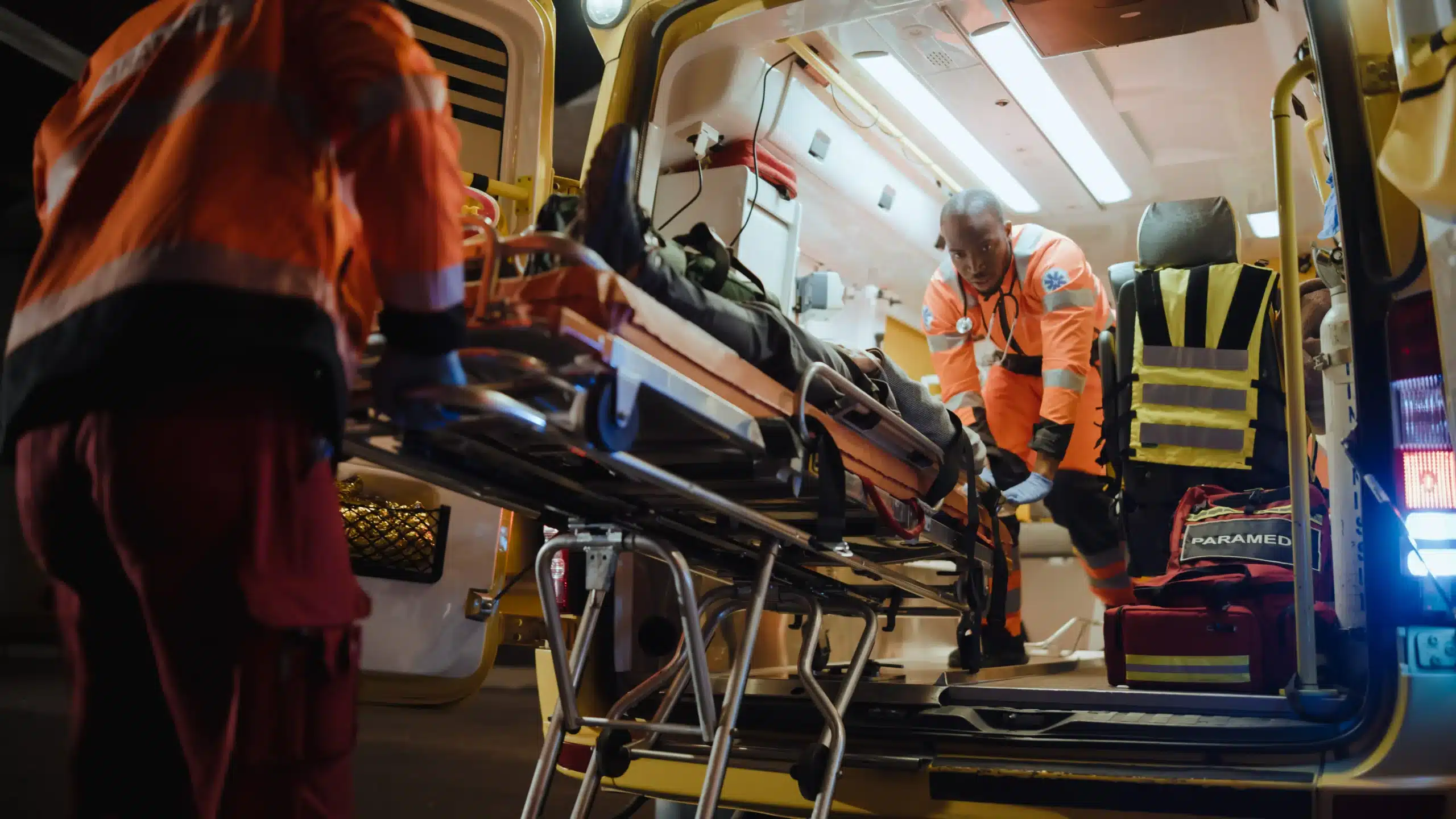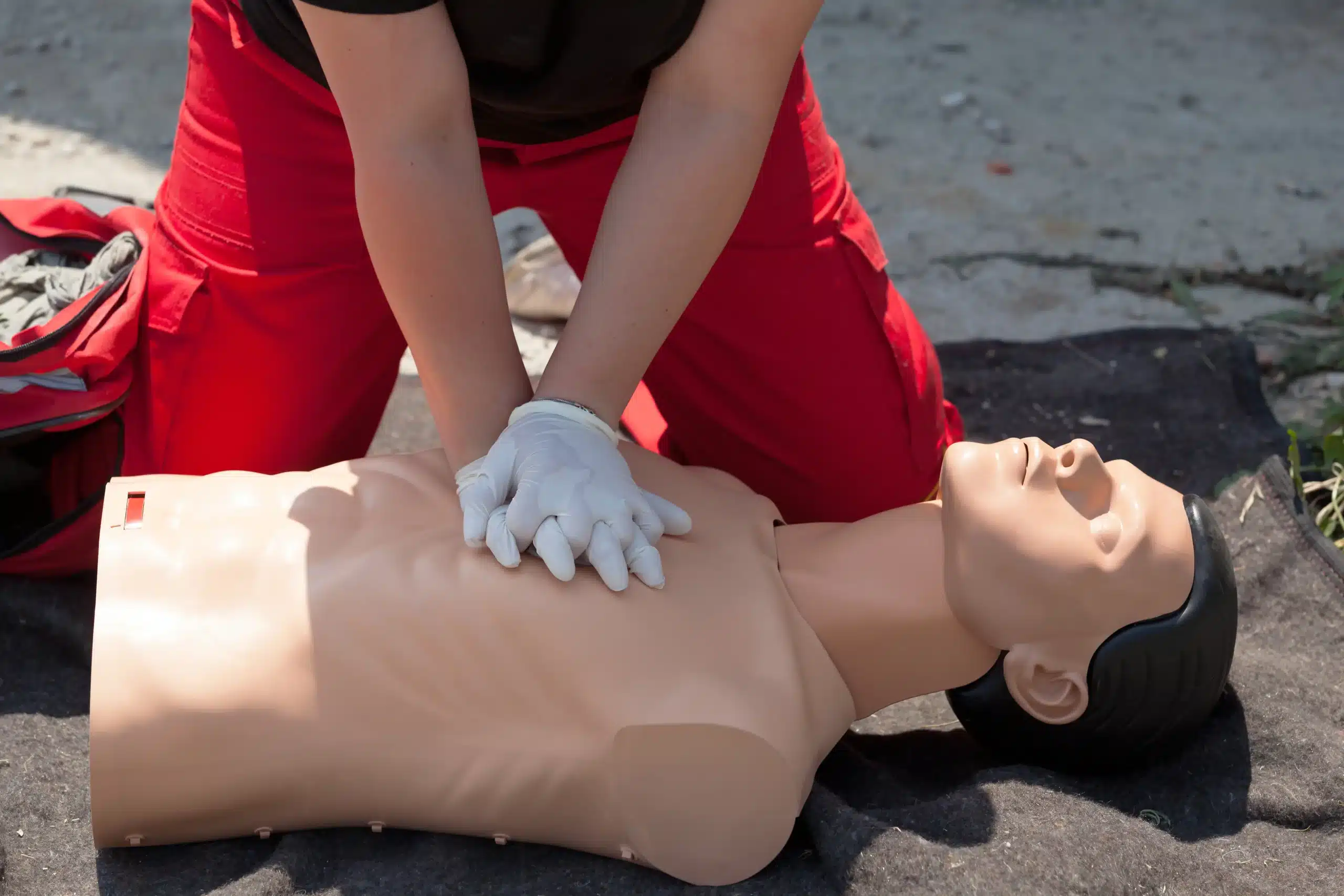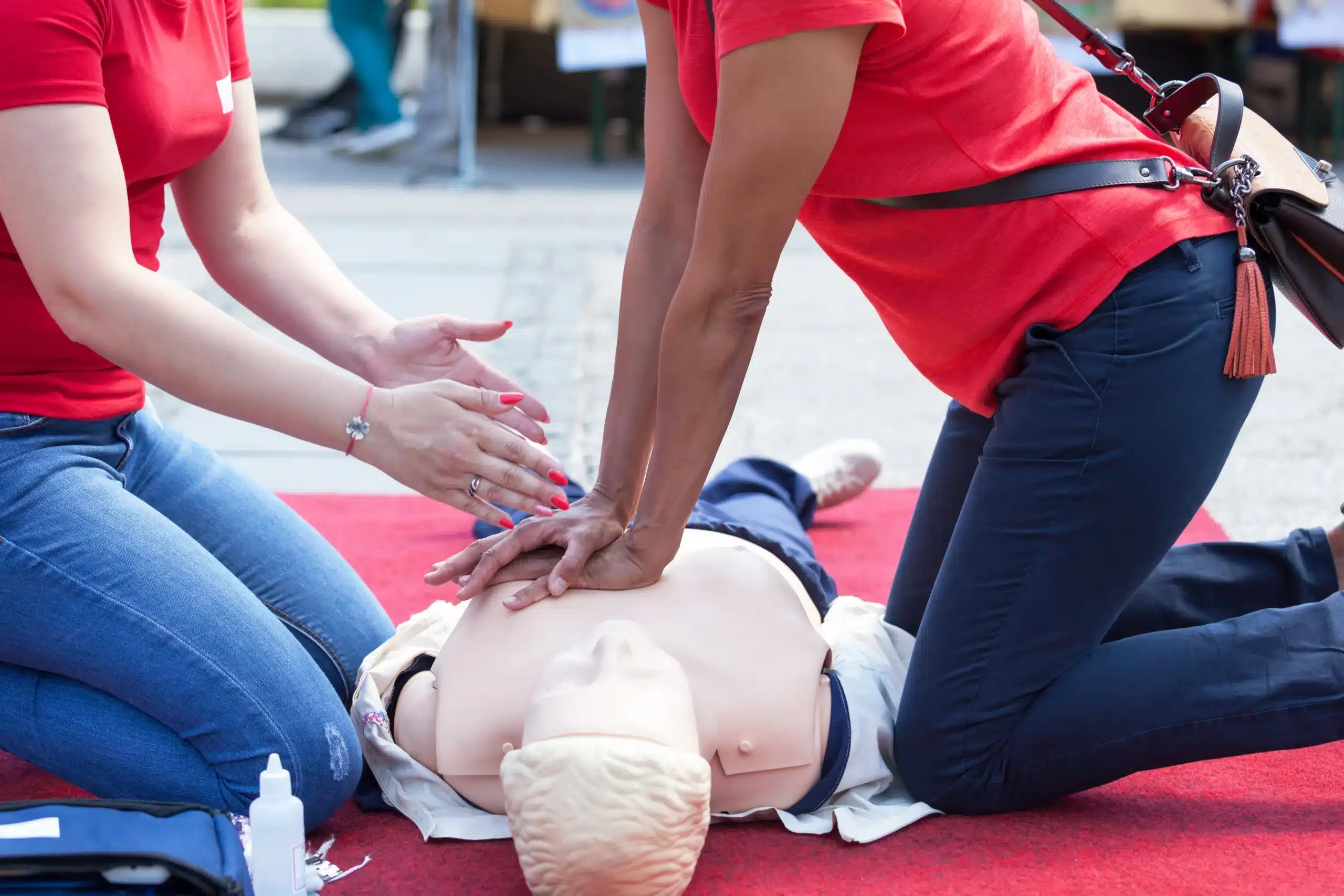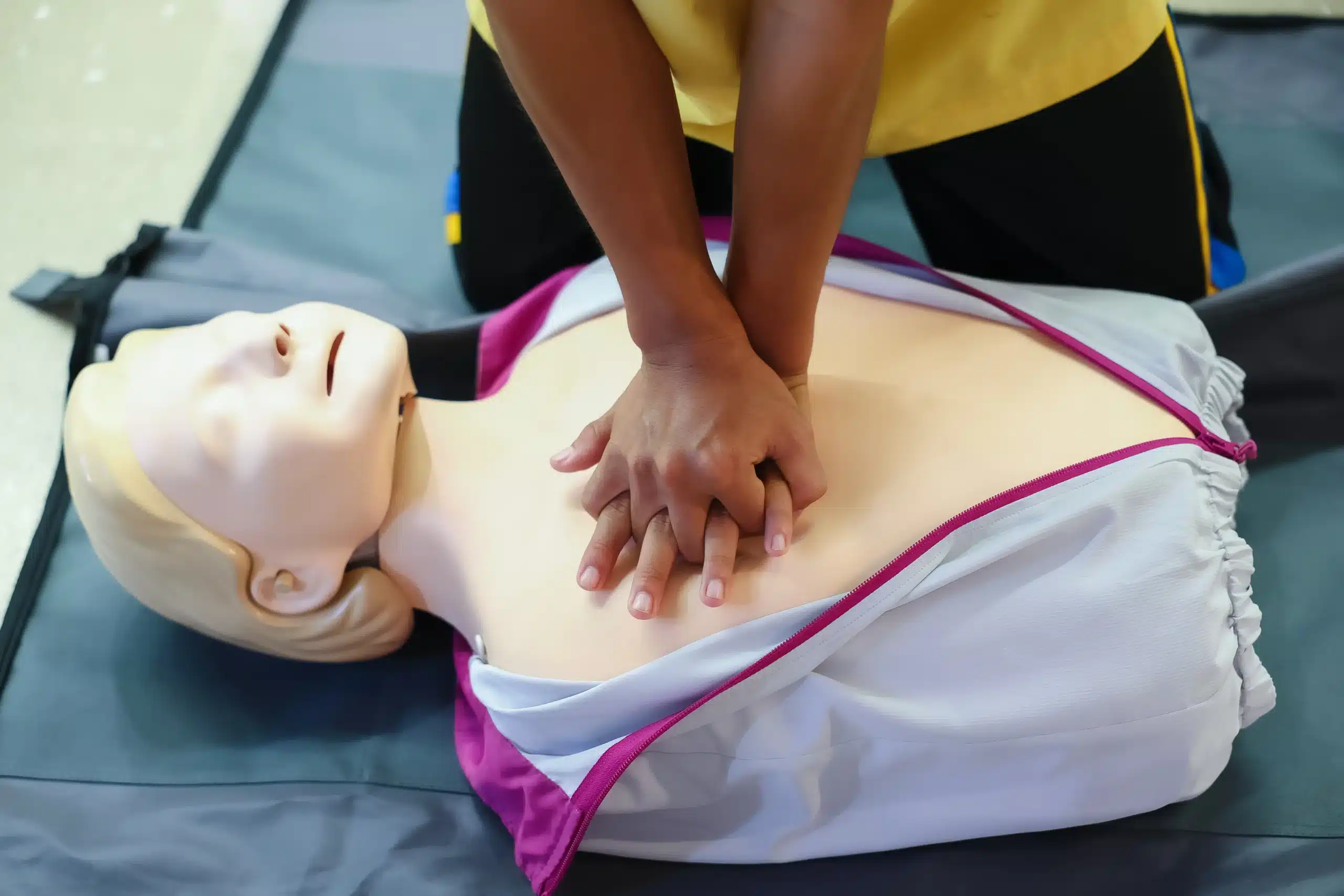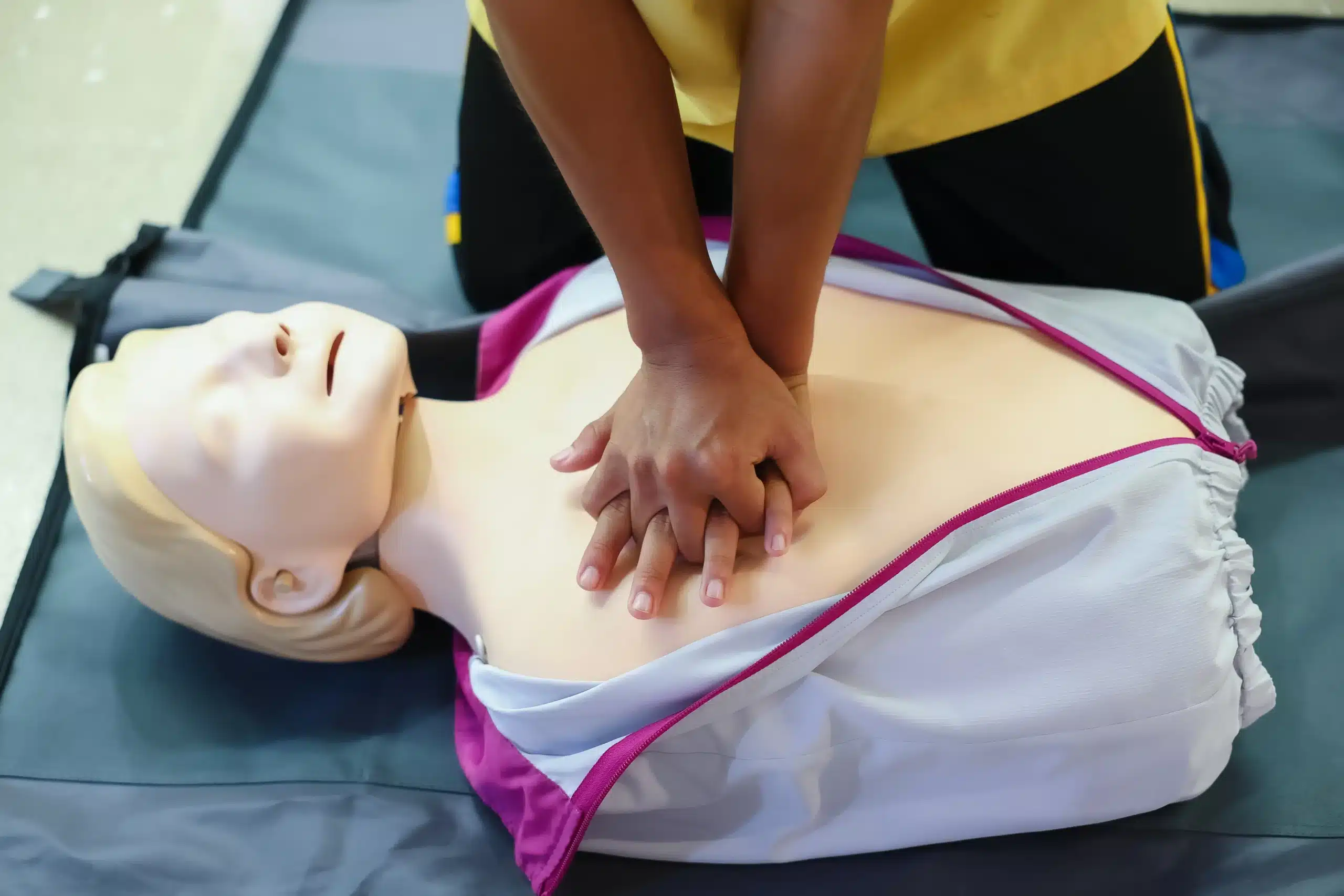Working in healthcare in San Jose means being prepared for anything. When a cardiac emergency strikes, you need to be ready to act quickly and confidently. That’s where Advanced Cardiovascular Life Support (ACLS) training comes in. Finding the right ACLS courses in San Jose can be the key to advancing your career and, more importantly, saving lives. This guide breaks down everything you need to know about ACLS certification in San Jose, from course structure and prerequisites to cost and top training providers. We’ll also explore the benefits of ACLS certification, share student experiences, and offer practical tips for overcoming challenges during training. Whether you’re a seasoned healthcare professional or just starting your career, this guide will help you find the perfect ACLS course to meet your needs.
Key Takeaways
- ACLS is crucial for healthcare providers: It provides the advanced skills needed in cardiac emergencies, improving patient care and opening doors to career advancement. Find a course that balances theory and hands-on practice.
- Choose your ACLS course wisely: Consider location, cost, schedule, and instructor experience. Blended learning options offer flexibility. Check for low price guarantees and group discounts.
- Prepare for ACLS training: Review the ACLS Provider Manual and use available study resources. Practice skills and time management to build confidence. Real-world simulations offer valuable practice.
What are ACLS Courses?
Advanced Cardiovascular Life Support (ACLS) courses prepare healthcare professionals with the advanced skills needed to handle serious cardiac emergencies. These courses build upon the foundation of basic life support (BLS) and emphasize a systematic approach to patient care, highlighting teamwork and clear communication during critical situations. Consider ACLS the next step for those regularly involved in cardiovascular care. ACLS training addresses various topics, from recognizing and managing cardiac arrest to understanding the medications used in these emergencies. The goal is to give providers the tools they need to make quick, informed decisions that directly affect patient outcomes. If you’re a healthcare provider involved in managing cardiopulmonary arrest or other cardiovascular emergencies, ACLS certification is likely a professional requirement, something you’ll want to maintain throughout your career. Many hospitals and emergency services require their staff to have ACLS training, ensuring a consistent standard of care and a coordinated response to these critical events. It’s not simply about knowing the information; it’s about applying it effectively under pressure. ACLS courses often include hands-on simulations and case studies, allowing participants to practice their skills and gain confidence in managing real-world situations.
Top ACLS Course Providers in San Jose
Finding the right ACLS course is crucial for a positive learning experience. Here are some reputable training centers in San Jose:
Safety Training Seminars
Safety Training Seminars, an AHA Training Center, offers ACLS courses alongside other certifications like BLS, PALS, CPR, and First Aid. They are known for excellent customer service and a low price guarantee. Their San Jose location conveniently serves San Jose, Santa Clara, and Sunnyvale.
CPR Training Center
The CPR Training Center in San Jose provides AHA ACLS certification renewal classes. Their six-hour courses include hands-on training and require completing online pre-course study materials. Students can bring their own ACLS Provider Manual or buy one at the center.
American Heart Association Affiliates
You can find ACLS courses in San Jose directly through the American Heart Association website. Their course locator tool helps you find classes from various affiliates, including local colleges and universities.
Cascade Training Solutions
Cascade Training Solutions offers various levels of AHA resuscitation training, from basic to advanced. They provide both initial and renewal ACLS certification courses and serve the greater San Jose region.
Santa Clara CPR Classes
Santa Clara CPR Classes provides AHA ACLS courses designed to give healthcare professionals advanced skills for cardiac emergencies. They emphasize affordable, high-quality training and also have a low price guarantee on ACLS renewal courses.
Cost of ACLS Courses in San Jose
Knowing the cost of ACLS courses in San Jose helps you budget effectively. This section breaks down the typical price range, potential discounts, and how Safety Training Seminars’ pricing compares.
Average Price Range
In San Jose, ACLS classes typically cost between $150 and $200. This fee generally covers the course materials, instruction, written exam, and hands-on skills testing. You’ll find this price range pretty standard among various training providers in the area. For more information on ACLS certification costs, this resource may be helpful.
Group Discounts and Special Offers
Want to train with colleagues? Many training centers offer group discounts, making training more affordable. For example, some providers offer a 20% discount for groups of two to five people. Look for special promotions too—some centers periodically offer further discounts, which can lower the overall cost. CPR Training Center is one place to explore group discounts and special offers.
Safety Training Seminars’ Low Price Guarantee
Safety Training Seminars offers a low price guarantee on ACLS renewal courses. This commitment to affordability, combined with their focus on high-quality instruction, makes them a popular choice for healthcare professionals in San Jose renewing their ACLS certification. Learn more about their low price guarantee.
ACLS Course Structure and Certification
Getting your ACLS certification involves a structured approach combining online learning, hands-on skills sessions, and assessments. This blended learning model offers flexibility and ensures you gain both theoretical knowledge and practical skills.
Blended Learning Options
Many ACLS providers offer blended learning, which typically includes online coursework through the HeartCode ACLS platform combined with an in-person skills session. This approach allows you to learn the core concepts at your own pace before demonstrating your skills in a practical setting. This flexible format makes ACLS training accessible even with busy schedules. Safety Training Seminars offers this blended learning option, allowing you to complete the cognitive portion online before scheduling your hands-on skills check-off.
Hands-On Training with Voice-Assisted Manikins
The hands-on portion of the ACLS course utilizes voice-assisted manikins. These sophisticated tools provide real-time feedback and simulate realistic patient scenarios. You’ll work independently with the manikin during your skills test, but an instructor is available for support if needed. This approach helps build confidence and reinforces the skills learned during the online portion of the course.
Written Exam and Skills Test
After completing the online modules, you’ll need to pass both a written exam and a skills test. Make sure you’ve studied the ACLS Provider Manual and completed any required pre-course materials. The written exam assesses your understanding of key ACLS concepts, while the skills test evaluates your ability to perform essential procedures.
Same-Day Certification
Upon successful completion of both the written and skills tests, you’ll receive your ACLS certification card the same day. This means you can immediately apply your new skills and knowledge in your professional practice. Same-day certification streamlines the process and gets you certified quickly.
ACLS Course Prerequisites
Before you jump into an Advanced Cardiovascular Life Support (ACLS) course, it’s important to make sure you have the right foundation. These prerequisites ensure you’re prepared to grasp the advanced concepts and techniques covered in ACLS training.
Current BLS Certification
First things first, you’ll need a current American Heart Association (AHA) Basic Life Support (BLS) for Healthcare Providers certification. This is non-negotiable for ACLS courses. Your instructor will need to verify your BLS certification, so have your card ready. If your BLS certification is about to expire, or if you need to get certified, check out our BLS courses in San Jose. We offer a variety of course times to fit your schedule.
ECG Rhythm Interpretation Skills
ACLS builds upon the foundational skills learned in BLS, adding a critical layer of electrocardiogram (ECG) interpretation. You should be comfortable recognizing various heart rhythms relevant to advanced cardiovascular life support. This means being able to identify these rhythms both on monitors and on paper tracings. This skill is essential for combining effective BLS techniques with appropriate pharmacological interventions. For more information on related training, explore our RQI program, which focuses on high-quality CPR skills and rhythm recognition.
ACLS Provider Manual and Pre-Course Materials
Having the current AHA ACLS Provider Manual is a must for the course. This manual serves as your guide throughout the training and is an invaluable resource for future reference. If you’re renewing your ACLS certification, you’ll also need to bring your current, valid ACLS card along with your BLS card to class. Having these materials ensures you’re well-prepared and ready to learn. You can typically purchase the ACLS Provider Manual through the AHA or through your chosen training center.
What to Expect in an ACLS Course
Stepping into an ACLS course is a significant move toward mastering advanced life support techniques. This section gives you a preview of what you’ll learn and experience. From essential concepts to hands-on practice and realistic simulations, ACLS courses offer comprehensive training to prepare you for complex cardiac emergencies.
Key Topics Covered
ACLS courses cover crucial topics, building upon the foundation of basic life support. You’ll delve into the science behind effective resuscitation, exploring concepts like high-quality CPR and its impact on patient outcomes. A key focus is recognizing and interpreting cardiac rhythms, a skill honed through interactive sessions and case studies. The course also emphasizes the appropriate use of medications during resuscitation, ensuring you’re equipped to make informed decisions in critical moments. Understanding these core concepts is fundamental to providing effective advanced cardiac life support. For a deeper dive into the fundamentals, check out our BLS course page.
Skills Taught and Practiced
ACLS courses are highly practical, providing ample opportunities to hone essential skills. You’ll refine your CPR technique, ensuring you can deliver high-quality compressions and ventilations. The course also covers the effective use of an Automated External Defibrillator (AED), a critical tool in cardiac arrest situations. You’ll gain proficiency in interpreting ECG rhythms, learning to identify different arrhythmias and make appropriate treatment decisions. These hands-on sessions build confidence and competence, preparing you to respond effectively in real-world emergencies. Consider our BLS courses in San Jose to refresh your fundamental skills.
Real-Life Scenario Simulations
One of the most valuable aspects of ACLS training is the incorporation of real-life scenario simulations. These simulations create realistic emergency situations, allowing you to apply your knowledge and skills in a controlled environment. You’ll work as part of a team, facing simulated cardiac arrests and other complex resuscitation scenarios. This immersive experience helps you develop critical thinking, problem-solving, and teamwork skills, preparing you for the pressures and complexities of real-world emergencies. Our RQI program also emphasizes the real-world application of these essential skills.
Choose the Right ACLS Course in San Jose
Finding the right Advanced Cardiovascular Life Support (ACLS) course can feel overwhelming with so many options in San Jose. But with a little research, you can find the perfect fit. This section breaks down key factors to consider when making your decision.
Factors to Consider
When selecting an ACLS course, think about your priorities. Is it a convenient location? A specific learning style, like in-person versus blended learning? Or perhaps the instructor’s experience? Also, consider the overall cost and whether the course offers the right balance of theory and hands-on practice. Reading student reviews can offer valuable insights.
Compare Course Offerings
Take time to compare what different training providers offer. Safety Training Seminars offers a variety of AHA-certified courses, including ACLS, in San Jose. For a broader search, explore other providers like the Cascade Training Center, which also serves the San Jose region. Check each provider’s website for details on course content, schedules, and any unique features.
Flexible Scheduling Options
Juggling work and life makes flexibility essential. Look for courses with various schedules, including weekend and evening options. Many training centers in San Jose understand busy schedules and offer ACLS courses designed to fit your life. Safety Training Seminars offers courses seven days a week, making it easier to find a time that works. Check each training center’s calendar to explore availability.
Why is ACLS Certification Important for Healthcare Professionals?
For healthcare providers, ACLS certification is more than just a credential—it’s a vital tool that prepares you to handle critical cardiac emergencies. Whether you’re a nurse, physician, paramedic, or respiratory therapist, maintaining a current ACLS certification demonstrates your commitment to excellent patient care and opens doors to career advancement.
Career Advancement Opportunities
In many healthcare settings, ACLS certification isn’t just suggested—it’s often a job requirement. Most US hospitals and emergency services mandate ACLS certification for their staff, recognizing its importance in providing high-quality care. While other certifications exist, non-AHA certifications may not always be accepted. Earning your ACLS certification can significantly impact your career path, making you a stronger candidate for promotions and specialized roles. It can also expand your job prospects, allowing you to pursue opportunities in various healthcare systems and facilities.
Improve Patient Outcomes
ACLS training equips healthcare professionals with the advanced skills to manage complex cardiac emergencies. From recognizing and treating life-threatening arrhythmias to providing advanced airway management, the comprehensive nature of ACLS courses directly contributes to improved patient outcomes. By developing these skills, you’ll be better prepared to stabilize patients, minimize complications, and ultimately improve survival rates. This ability to deliver effective and timely interventions during critical moments is essential for providing the best possible care.
Enhance Emergency Response Skills
ACLS is a cornerstone of emergency medical care. It provides a standardized approach to managing cardiac arrest and other cardiovascular emergencies, ensuring a coordinated and efficient response from the entire medical team. ACLS training builds the knowledge and skills needed to quickly assess, diagnose, and treat patients in these high-pressure situations. This improved ability to react decisively and confidently during emergencies not only benefits patients but also fosters a more effective and cohesive healthcare team.
Overcome Challenges in ACLS Training
ACLS training can be demanding, but with the right approach, you can overcome common hurdles and succeed. Here’s how to tackle some key challenges:
Time Management Strategies
Time is of the essence in emergency situations. Developing strong time management skills is crucial for effective ACLS performance. During your training, practice prioritizing tasks and executing them efficiently. The ACLS algorithms themselves are designed to guide you through a systematic approach, so familiarize yourself with these treatment protocols. Repetitive practice during realistic simulations will help you internalize these processes and improve your speed and accuracy under pressure. This preparation will translate to better decision-making and improved patient outcomes in real-world scenarios. Consider using a timer during practice scenarios to further hone your time management skills.
Address Performance Anxiety
It’s completely normal to feel some anxiety, especially when you’re learning complex medical procedures. Thorough preparation is the best antidote. Review the ACLS Provider Manual and other course materials beforehand. Take advantage of practice exams and online resources to reinforce your knowledge. The more familiar you are with the material, the more confident you’ll feel going into the training. Hands-on practice with simulations also helps build confidence and reduce anxiety during evaluations. Remember, the goal of training is to prepare you, so embrace the learning process and view each challenge as an opportunity to grow. If you find yourself struggling with anxiety, consider talking to your instructor or a mentor for additional support.
Use Study Resources Effectively
Make the most of the resources available to you. Before the course begins, review the latest ACLS guidelines and algorithms. Many providers, like Safety Training Seminars, offer pre-course materials and practice tests. Take advantage of these resources to identify your strengths and weaknesses. Online resources and study guides can supplement your learning and provide different perspectives on the material. Focus your study efforts on areas where you need improvement and use a variety of learning methods to solidify your understanding. Don’t hesitate to ask your instructor for clarification on any confusing topics. Effective use of study resources will significantly enhance your proficiency and confidence in managing cardiovascular emergencies. Creating a study schedule and sticking to it can also help you stay organized and manage your time effectively.
Student Experiences and Course Reviews
Sharing student experiences and reviews offers valuable insights into what you can expect from an ACLS course. It’s like getting a sneak peek before you sign up.
Feedback on Course Quality
Positive feedback often centers around the clarity and effectiveness of the course material. Students appreciate concise and easy-to-understand content, especially when learning complex concepts. For example, one ACLS student described the information as “clear and concise,” emphasizing how much they learned from the ACLS course. Another participant found the material “easy to read” and “very helpful” for understanding heart rhythms and ACLS algorithms. This type of positive feedback reinforces the value of well-structured course materials. You can find more student testimonials on ACLS.net.
Instructor Effectiveness
The instructor’s expertise and teaching style significantly impact the learning experience. Students value instructors who are knowledgeable, engaging, and create a comfortable learning environment. One student praised their instructor for efficiently teaching the skills and conducting testing. Others have highlighted the instructors’ knowledge and ability to put students at ease. These comments underscore the importance of skilled and supportive instructors in a successful ACLS course. Check out more reviews on CPR of America’s website. Our instructors at Safety Training Seminars prioritize a supportive and effective learning environment.
Real-World Application of Skills
Perhaps the most compelling feedback comes from students who have used their ACLS skills in real-world emergencies. One healthcare provider described using their training during a code in their facility shortly after completing the course. This firsthand account demonstrates the practical value of ACLS certification. Another student emphasized that ACLS certification is not just a credential but represents the skills and knowledge that can make a life-or-death difference. These stories highlight the profound impact of ACLS training and its relevance in real-life situations. Read more about how ACLS training has helped others on ACLSNow’s testimonial page. Consider registering for one of our upcoming ACLS courses in San Jose to gain these valuable skills.
Related Articles
- HeartCode ACLS San Jose: Your Complete Guide – San Jose CPR Classes
- ACLS Courses in Sunnyvale: Your Complete Guide – San Jose CPR Classes
- ACLS Certification Classes San Jose | AHA Certification Course
- How to Find an ACLS Course in San Jose – San Jose CPR Classes
- CPR Training Center in San Jose | BLS, ACLS, PALS Classes
Frequently Asked Questions
What exactly does ACLS cover that goes beyond basic CPR?
ACLS training builds upon basic life support skills, focusing on the comprehensive management of cardiovascular emergencies, including cardiac arrest, stroke, and acute coronary syndromes. It delves into advanced airway management, ECG rhythm interpretation, appropriate drug therapies, and effective team dynamics during resuscitation. It’s about coordinating a rapid and effective response in complex, high-stakes situations.
How do I choose the right ACLS course in San Jose for my needs?
Consider factors like location, schedule, course format (blended learning or traditional), instructor experience, and cost. Look for courses that offer a balance of theoretical knowledge and hands-on practice, and don’t hesitate to read reviews from past students. A convenient location and flexible scheduling options can make a big difference if you have a busy life.
I’m nervous about the skills testing. What if I don’t pass?
It’s natural to feel some pressure, but remember, the instructors are there to support you. Prepare thoroughly by reviewing the course materials and practicing the skills. Many training centers offer practice sessions and feedback to help you build confidence. If you don’t pass initially, most providers offer opportunities to retest.
How long is the ACLS certification valid, and how do I renew it?
ACLS certification is typically valid for two years. Renewal involves completing a refresher course before your current certification expires. This ensures your skills and knowledge remain up-to-date with the latest guidelines.
Why should I choose Safety Training Seminars for my ACLS training?
Safety Training Seminars is an AHA Training Center known for its commitment to high-quality instruction, excellent customer service, and competitive pricing. They offer a low price guarantee and convenient scheduling options, making them a popular choice for healthcare professionals in San Jose. Their focus is on providing a supportive and effective learning environment.


